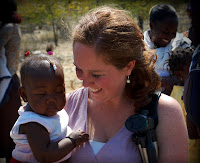 In the work we do, where crossing country boundaries is a regular occurrence, you get to see your fair share of consulates and embassies and all their various guises.
In the work we do, where crossing country boundaries is a regular occurrence, you get to see your fair share of consulates and embassies and all their various guises.When you deal with any government office, you do get the feeling that once you walk through the door, you go from being a unique individual with thoughts, feelings, ideas and ideals to being a number. Sometimes, you are literally given a number, other times its just an attitude that states a lesser importance to anyone on the 'public' side of the desk.
The poet, Emily Dickinson once wrote, if you take care of the small things, the big things take care of themselves. As I waited the 45 minutes from when the official took my paperwork to the point of returning with a fumbled "not ready yet" answer, I had the opportunity to watch the goings on behind the desks of this consular office. I noticed that they had two staplers, two rubber stamps, three pens and one box of paper clips. But there were four officers on duty, all needing to staple, stamp and clip papers together. As I watched one person pick up a stapler from one table, they put it back on top of a filing cabinet. Then another officer took the box of paper clips from one desk, used a clip and placed it on another desk. This went on and it was like a game to watch where each item ended up.
What was most interesting to me was the sheer amount any one officer spent looking for one of these or other items that had just 'vanished'. I counted at least 5 times over this period where one officer would say to the other "do you have..." or "have you seen the...". It gave me a picture of what potentially happens to my application form as it weans its way from one official department to the other.
For this particular application, I now have four different reference numbers, some interchangeable, some not. They haven't yet admitted losing my paperwork, but the latest news I have had from this office is that if I were to re-apply, it would "help speed things up". I'm not sure how re-submitting paperwork would speed things up, unless of course, someone has filed my application in the bin.
Needless to say, patience is called for in such circumstance; it doesn't 'do' to lose your cool. Yet the self-appointed authority that these establishments give themselves and their officials can drive you to distraction!
Now, of course, I've been told that they can't process the re-submitted application until it has been rubber-stamped from the office in town. What joy tomorrow will be as I return to this office with more forms to be rubber stamped (or not, depending on where they've left their stamp).


